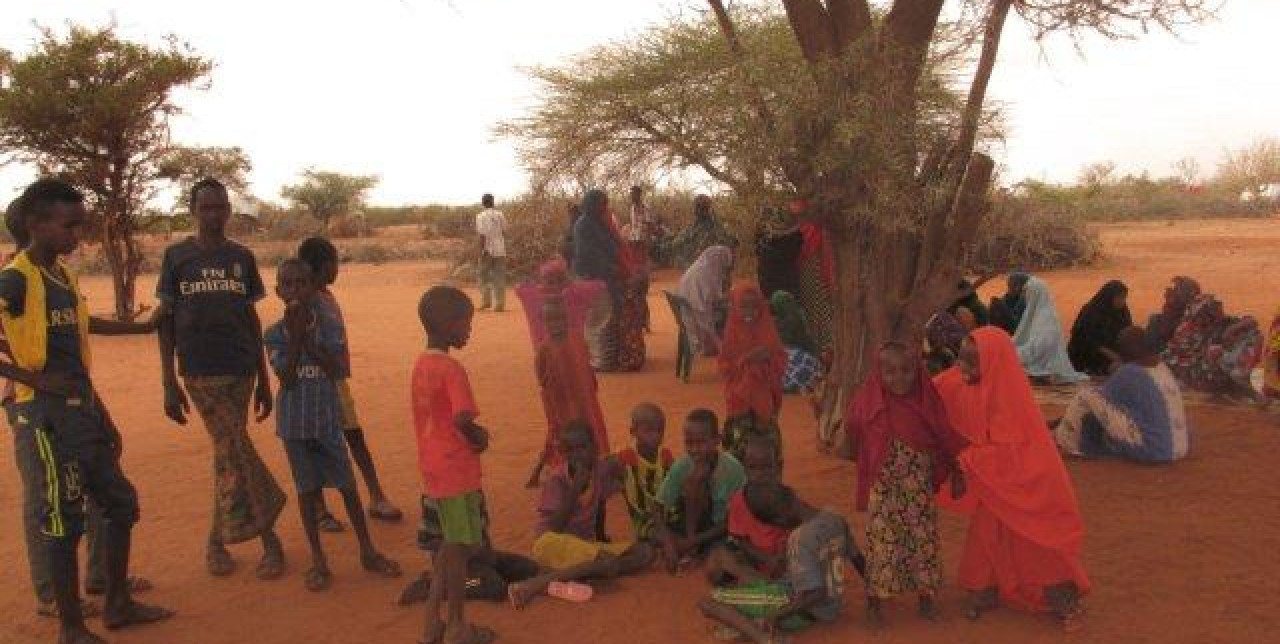16-12-2016 | di COOPI
Somalia, an integrated approach in emergencies
There are many ways to save lives in emergencies and crisis. In the South-Central of Somalia, in relation to the project supported by ECHO (the EU Humanitarian Aid), COOPI is working from March 2016 through an integrated approach addressed to the most vulnerable populations affected by natural and man-made disasters. Here both internally displaced person and riverine farmers benefit from different supports, in order to enhance local response and preparedness capacities to future shocks. Each of the families and communities we help is living a crisis and is seeking for a better life and opportunities. Behind some of them there is a “success story”, a way they find to improve their lives, which we think is always important to share.
Adey, improving nutritional security
“I had three sons, one of them was unable to stand and walk because of the poor diet. We could not get or afford all the food varieties we needed. Usually we stayed hungry or had one meal per day”. In the “internally displaced person” camp of Kabasa, the family of Adey received Fresh Food Vouchers. Through increased income, education and livelihoods protection, COOPI is working to improve access to nutritious food for the vulnerable households. “I kept on wondering why my younger son could not walk and play like his friends, but since we started receiving the fresh fruits he is so energetic”.
Barey, strengthening resilience
”For the last ‘Deyr’ and ‘Gu’ season we haven’t received much rain and this was a real problem for the pastoral community” said Barey in the Qurday village. “In particular my family has experienced hardship and suffering in fetching water from the river, which is almost 20kms away” said Barey “and this led some of our livestock started dying due to lack of water and food”. With COOPI's intervention the community received water supply through trucks. “We can now feed our livestock and children properly without fear because the water shortage has ended”.
Sareyo, access to safe wash services
In some other areas affected by high concentration of outbreaks, COOPI is working to increase access to safe drinking water and appropriate sanitation practices. In the Bulla Qolloc village, Sareyo told us “We didn’t pay much attention to how our health depends on our hands, covering of food and proper cleaning of our hands”. Distributing hygiene kits and promoting awareness on hygiene helped to reduce incidence of diarrhoeal diseases. “We have bar soaps for cleaning, jerry-can with lids for fetching water and aquatabs to clean our water after fetching from the river”. Beside the people who live in a crisis, forced to survive with little resources or to move in refugees fields, humanitarian support could help not just to save lives but to look to the future as well.




 Somalia
Somalia